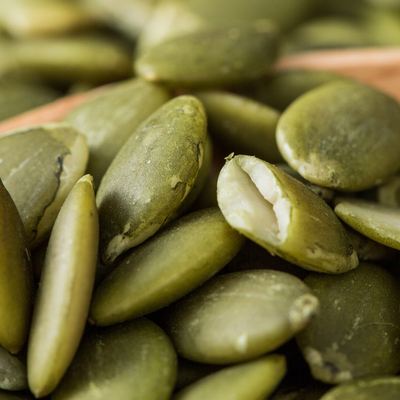Website:Innuts.com
While pumpkin seeds offer several health benefits, consuming excessive amounts can have some disadvantages. Here are a few potential drawbacks of eating too many pumpkin seeds:
1. High calorie and fat content: Pumpkin seeds are relatively high in calories and fat. While the fat content is mainly healthy monounsaturated and polyunsaturated fats, excessive consumption can lead to weight gain and increase the risk of cardiovascular issues if consumed in excess.
2. Excess fiber intake: Pumpkin seeds are a good source of dietary fiber. While fiber is generally beneficial for digestive health, consuming excessive amounts can cause digestive discomfort, including bloating, gas, and diarrhea.

3. Allergic reactions: Some individuals may be allergic to pumpkin seeds. Allergies can cause symptoms such as itching, hives, swelling, and even more severe reactions in rare cases. If you experience any allergic symptoms after consuming pumpkin seeds, it's important to seek medical attention.
4. Oxalate content: Pumpkin seeds contain oxalates, naturally occurring compounds found in many plant-based foods. In individuals with a history of kidney stones or who are at risk of developing them, excessive oxalate consumption can contribute to the formation of kidney stones. However, this risk is relatively low compared to certain other foods.
5. Heavy metal contamination: Although rare, pumpkin seeds, like other seeds and nuts, can sometimes be contaminated with heavy metals, such as lead or cadmium. These metals can have detrimental effects on health if consumed in high amounts.
It's worth noting that the disadvantages mentioned above usually occur when pumpkin seeds are consumed in excessive quantities. Moderation is key to enjoying the benefits of pumpkin seeds while minimizing any potential negative effects. It's always a good idea to consult with a healthcare professional or nutritionist for personalized advice regarding your diet.
Please follow Innuts.com.

